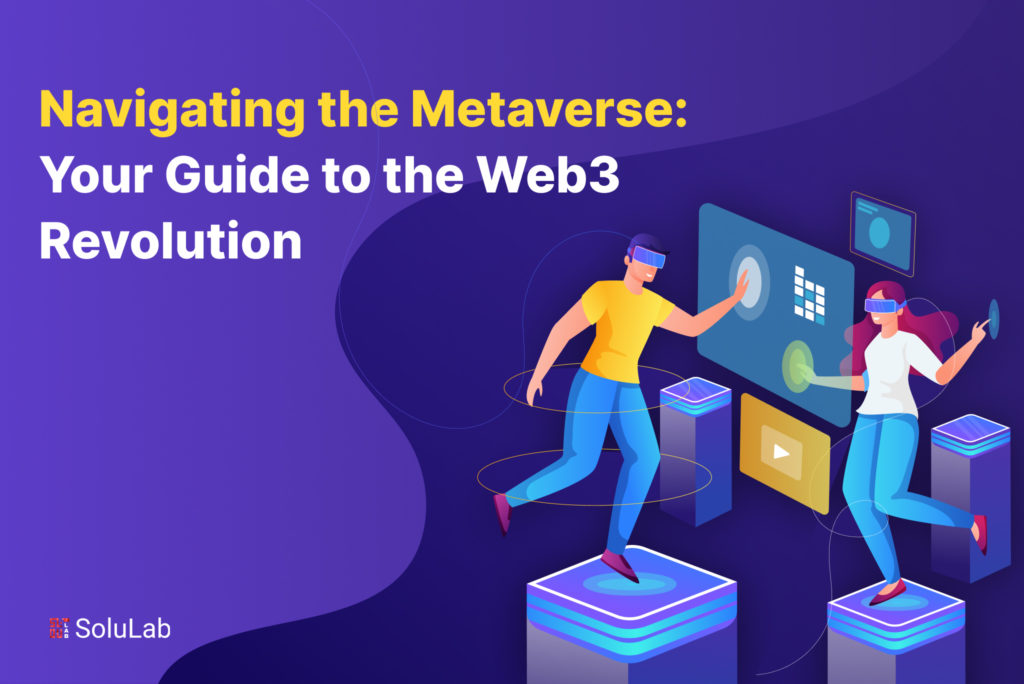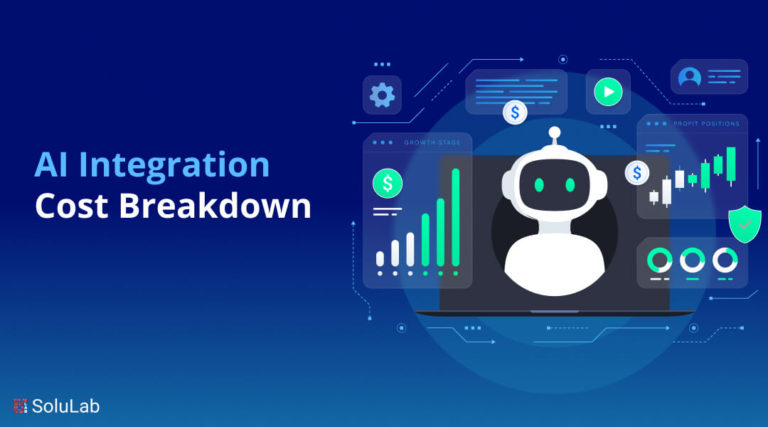
Metaverse has emerged as the epicenter of innovation, offering a convergence of Metaverse development, Augmented Reality (AR), and Metaverse AI Integration. This comprehensive guide delves into the top metaverse platforms and Web3 development, unveiling the intricacies of Web3 technology and the myriad of Web3 use cases that are shaping our tomorrow.
The concept of the Metaverse has ignited the imagination of people worldwide, and its implications are profoundly transformative. In this Introduction, we will define the Metaverse and explore its intersection with the emerging Web3 technology.
The Metaverse, in its essence, is a virtual, interconnected universe comprising multiple digital spaces and environments. It is not limited to one platform but is an expansive, collective virtual reality that combines real-world and digital experiences. In the Metaverse, individuals are represented by digital avatars, and they can interact, socialize, work, and play within this shared digital space.
What are the key components of the Metaverse?

-
Virtual Reality (VR)
The Metaverse often incorporates VR technology, enabling users to immerse themselves fully in the digital environment.
-
Augmented Reality (AR)
AR enhances the real world with digital information and objects, bridging the gap between the physical and digital realms.
-
Metaverse AI Integration
AI technologies are integrated into the Metaverse to create dynamic and responsive virtual environments. These AI-driven systems adapt to user behavior, enhancing the overall experience.
What is the Role of Augmented Reality and Virtual Reality in the Metaverse?

As the metaverse continues to evolve and shape the digital landscape, it’s imperative to understand the crucial role that augmented reality (AR) and virtual reality (VR) play within this emerging realm. The metaverse represents a convergence of the physical and digital worlds, and the incorporation of AR and VR technologies is pivotal in achieving this vision.
-
Metaverse Development and Integration
Metaverse development, as a whole, encompasses the creation of virtual spaces, interconnected ecosystems, and digital experiences.
AR and VR are integral components of this development, enhancing the immersion and interactivity offered by metaverse platforms. The integration of AR and VR technologies in the metaverse is essential for creating rich, engaging, and dynamic virtual environments.
-
Metaverse AI Integration
Metaverse AI, another critical element, leverages artificial intelligence to facilitate interaction, personalization, and automation within the metaverse.
AR and VR, when combined with AI, enable more natural and intuitive user experiences. This synergy opens the door to various applications, from virtual assistants guiding users through metaverse experiences to personalized content recommendations.
-
Metaverse Use Cases and Benefits
AR and VR bring tangible benefits to the metaverse in terms of user engagement and practical applications. They can be utilized across various sectors, including education, entertainment, healthcare, and more.
For instance, in education, AR and VR can create immersive learning environments, making complex subjects more accessible and interactive. In healthcare, they enable remote surgeries and medical training in a risk-free virtual environment. These use cases underscore the metaverse’s potential to revolutionize traditional industries.
-
Virtual Reality Metaverse
Virtual Reality Metaverse is a pivotal component of the metaverse, creating fully immersive experiences for users. Top metaverse platforms often prioritize VR integration to offer users an almost tangible sense of presence within the digital world.
This level of immersion opens up opportunities for social interaction, entertainment, and even remote work, transforming the way people connect and collaborate.
-
Future Based on the Metaverse
The future of the internet and digital experiences is heavily reliant on the metaverse, where AR and VR technologies will continue to be at the forefront.
As metaverse development progresses, we can expect to see even more sophisticated applications of AR and VR, leading to a more seamless blending of the physical and digital realms. Web3 technology and Web3.0 developer Leads the Way in Shaping the Metaverse?
The concept of the Metaverse has captured the imagination of tech enthusiasts, entrepreneurs, and investors alike. As the digital realm continues to evolve, the Metaverse is becoming more tangible, offering countless opportunities for innovation and engagement.
-
Selecting the Right Development Partners
Partnering with the right metaverse development companies is essential to harness the full potential of AR and VR within the metaverse.
These companies are equipped to provide the expertise and tools required for effective AR and VR integration. Similarly, in the realm of Web3 development, choosing the top Web3 development companies is vital for keeping pace with the ever-evolving technology landscape.
Who Leads the Way in Shaping the Metaverse?
The concept of the Metaverse has captured the imagination of tech enthusiasts, entrepreneurs, and investors alike. As the digital realm continues to evolve, the Metaverse is becoming more tangible, offering countless opportunities for innovation and engagement. But who are the leading players in the field of Metaverse development, and how are they shaping this virtual world of tomorrow?
In this ever-expanding universe of possibilities, Metaverse development companies are at the forefront, pushing the boundaries of what is possible in this interconnected digital space. These visionary organizations are pioneers, driving the evolution of Metaverse technology and its seamless integration into our daily lives.
Metaverse development services play a crucial role in bringing the Metaverse to life. These services encompass a range of activities, from designing immersive digital environments to developing Metaverse-compatible applications and platforms. With the integration of augmented reality and advanced Metaverse AI, the possibilities are virtually limitless. What can we expect from these services, and how will they shape the Metaverse landscape?
The Metaverse development field is in high demand, and this demand extends to skilled professionals who can bring these virtual worlds to life. One notable player in this space is SoluLab, a company renowned for its expertise in Metaverse development. Hiring dedicated developers for Metaverse projects is becoming increasingly essential, as companies and entrepreneurs seek to harness the potential of this digital frontier.
These developers possess a deep understanding of Metaverse technology, including Web3 development and integration of Augmented Reality (AR) and Metaverse AI. With an eye on top web3 platforms and the future implications of the Metaverse, they are vital to bringing innovative ideas to fruition.
As we navigate the exciting realms of Metaverse development, one thing is clear: the Metaverse is no longer science fiction but a dynamic and ever-evolving digital frontier with real-world applications, promising a future rich in interconnected experiences and opportunities.
How is the Integration of AI Shaping the Future of Digital Realities Within the Metaverse?

The Metaverse, a rapidly emerging digital realm where individuals can immerse themselves in augmented and virtual realities, is evolving at an unprecedented pace. Its development has been a confluence of Metaverse development, augmented reality, Web3 technology, and the integration of artificial intelligence (AI). This integration of AI is pivotal, as it significantly influences the future of digital realities within the Metaverse.
A. Metaverse AI and its Significance
In the ever-evolving landscape of the Metaverse, the integration of artificial intelligence (AI) holds a pivotal role. The Metaverse, a virtual universe interconnected with the real world, relies on advanced technologies to provide immersive experiences. AI integration into the Metaverse is significant for several reasons:
-
Enhanced User Experiences
Metaverse AI can adapt and personalize interactions, making the user experience more engaging and relevant. It can recognize user preferences, anticipate needs, and create a tailored environment.
-
Realism and Immersion
AI can contribute to the realism of virtual environments by simulating natural behavior and interactions. This enhances the immersion factor, blurring the lines between the digital and real worlds.
-
Dynamic Content Generation
AI can generate content dynamically, reducing the burden on content creators and ensuring that the Metaverse remains vibrant and continuously evolving.
-
Safety and Moderation
AI algorithms can help monitor and maintain a safe and respectful virtual environment by detecting and mitigating harmful or inappropriate behavior.
B. Potential Use Cases
Metaverse AI integration brings forth a multitude of potential use cases, ranging from entertainment to education and beyond:
-
Entertainment and Gaming
In virtual worlds, AI can create non-player characters (NPCs) with advanced behavior and personalities, making games more lifelike and challenging.
-
Education and Training
AI-driven virtual tutors and educational assistants can provide personalized learning experiences, adapting to individual learning styles and pacing.
-
Virtual Commerce
AI can assist users in shopping, recommending products, and creating virtual shopping experiences that mimic real-world retail.
-
Healthcare and Telemedicine
The Metaverse can be used for telehealth services, with AI helping diagnose and provide medical information to users.
-
Social Interactions
Metaverse AI can enhance social interactions by creating realistic avatars and facilitating natural language communication.
C. AI Integration in Top Metaverse Platforms
Leading Metaverse platforms are actively exploring AI integration to stay competitive and innovative. Several top Metaverse development companies are investing in AI technologies to power their platforms:
-
Virtual Reality Metaverse
Platforms like Oculus from Meta (formerly Facebook) are integrating AI to create realistic avatars and enhance user interactions.
-
Decentraland
This blockchain-based Metaverse leverages AI for content curation and moderation, ensuring a safe and enjoyable user experience.
-
Roblox
This popular gaming platform employs AI for game creation and scripting, allowing users to create their virtual experiences with ease.
-
Minecraft
Microsoft’s Minecraft Metaverse explores AI integration for world-building, making it easier for users to design and populate virtual environments.
-
OpenAI and Web3
OpenAI’s advancements in AI technology have broader implications for the Metaverse, as their AI models can be integrated into various platforms to enhance user interactions and content generation.
What are the Metaverse Use Cases and Benefits?

The Metaverse is rapidly evolving into a versatile digital realm with a multitude of use cases and benefits, transforming the way we interact with the virtual world. From education and training to business and marketing, and even healthcare and telemedicine, the Metaverse is poised to revolutionize various sectors. Here, we explore some of the key use cases and benefits, while also shedding light on how Metaverse development, Augmented Reality (AR), and Metaverse AI integration play crucial roles in shaping this futuristic landscape.
-
Metaverse in Education and Training
The Metaverse holds immense potential in the field of education and training, offering an interactive and immersive learning environment. Incorporating augmented reality and virtual reality technologies, educators can create dynamic simulations and interactive lessons, making complex concepts more engaging and easier to grasp.
Metaverse AI integration enables personalized learning experiences, tailoring content to individual student needs. This not only enhances understanding but also allows for continuous assessment and feedback.
-
Business and Marketing Opportunities
Businesses are recognizing the Metaverse as a new frontier for customer engagement and marketing. Brands can create immersive and interactive experiences within the Metaverse, enabling customers to interact with products, services, and advertisements more engagingly.
Top Metaverse platforms are becoming sought-after spaces for virtual events, product launches, and customer interaction, all while tracking user engagement in real-time. Web3 development trends and technology enable secure transactions and data management within these virtual environments, ensuring a seamless experience for users and businesses.
-
Healthcare and Telemedicine in the Metaverse
The Metaverse has the potential to revolutionize healthcare and telemedicine. Patients can access virtual clinics, consult with doctors, and even undergo medical procedures within this digital space. Augmented reality can aid in remote diagnoses, while Metaverse AI integration can assist in patient monitoring and treatment adherence.
The virtual reality Metaverse allows for realistic medical training simulations, enhancing the skills of healthcare professionals. This not only improves the quality of care but also extends healthcare services to remote or underserved areas.
Metaverse development companies and top Web3 development companies are at the forefront of building the infrastructure needed for these applications. They provide the tools and platforms that enable Metaverse experiences to thrive. Hiring dedicated developers with expertise in Web3 technology ensures the seamless integration of these technologies into Metaverse projects.
Conclusion
In conclusion, the Metaverse is not just a digital trend; it’s a revolution that will shape the future of the internet. As we step into the era of Web3, the Metaverse’s impact will be profound, affecting all aspects of our lives. To thrive in this new digital landscape, it’s crucial to embrace Metaverse development, Augmented Reality, and Metaverse AI integration. By doing so, we can unlock the limitless potential of the Metaverse and embark on an exciting journey that promises to redefine our online existence.
Augmented reality and Metaverse AI integration are the cornerstones of this revolution. These elements will unlock unprecedented possibilities, creating immersive and interactive experiences that seamlessly blend the virtual and real worlds. From entertainment and education to business and social interactions, the Metaverse promises to touch every aspect of our lives.
SoluLab, a leading player in this space, stands as a testament to the possibilities that the Metaverse holds. Their expertise in Metaverse development, Web3 technology, and Metaverse AI integration makes them a valuable partner for those seeking to navigate this uncharted territory. The future belongs to those who are ready to embrace the Metaverse, and with the right guidance, there are no limits to what we can achieve in this brave new digital world. In the rapidly evolving landscape of the Metaverse, SoluLab emerges as a leading force, equipped with expertise in Metaverse development, Web3 technology, and Metaverse AI integration. Partner with us to unlock the limitless potential of the Metaverse. Hire metaverse developers to embark on this exciting journey into the future of the digital world.
FAQs
1. What is the Metaverse, and how is it related to Web3 technology?
The Metaverse is a virtual, interconnected world where digital and physical realities merge. It’s closely linked to Web3 technology, which emphasizes decentralization and blockchain integration to create a more immersive online experience.
2. What is the Metaverse development process, and what are its key components?
Metaverse development involves creating the infrastructure, content, and platforms that enable users to interact in the digital realm. Key components include augmented reality, Metaverse AI integration, and virtual reality Metaverse environments.
3. Can you explain the concept of Augmented Reality in the Metaverse?
Augmented reality in the Metaverse refers to the integration of digital information and objects into the real world, enhancing the user’s perception of reality within the virtual space.
4. What are the top Metaverse platforms for development?
Top Metaverse platforms include virtual worlds like Decentraland, The Sandbox, and platforms that support blockchain integration such as Ethereum and Binance Smart Chain.
5. How does Metaverse AI play a role in the development of the Metaverse?
Metaverse AI enhances user experiences by providing personalized content, interactions, and virtual assistance, making the digital environment more dynamic and responsive.
6. What are the most prominent use cases and benefits of the Metaverse?
Metaverse use cases include virtual conferences, gaming, social interactions, education, and e-commerce. Benefits encompass improved accessibility, global connectivity, and new revenue opportunities.






